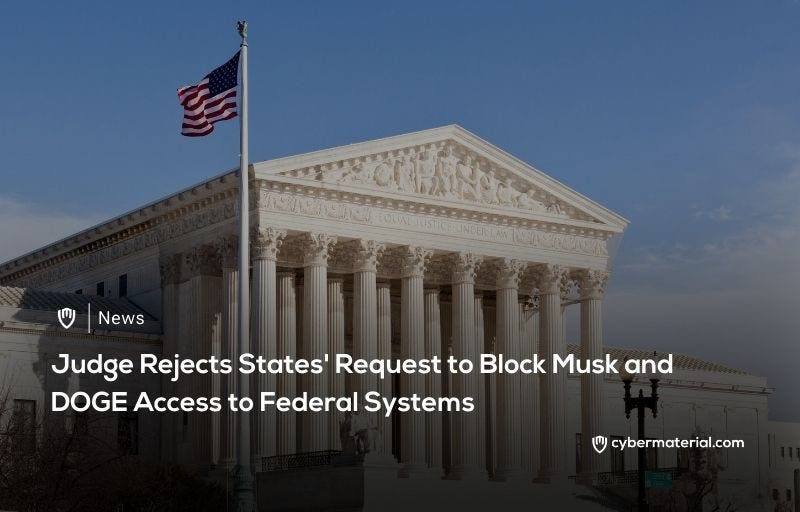
A federal judge recently dismissed a request from 14 Democrat-led states to block Elon Musk and the White House’s Department of Government Efficiency (DOGE) from accessing data systems at seven feder…

A federal judge recently dismissed a request from 14 Democrat-led states to block Elon Musk and the White House’s Department of Government Efficiency (DOGE) from accessing data systems at seven feder…